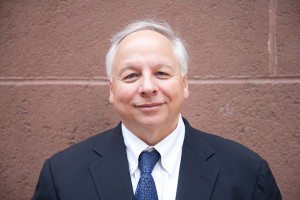If taxes are the price we must pay for a civilized society, transportation user fees, such as roadway tolls, transit fares and the gasoline taxes, are the price we pay for a civilized transportation system.
In many cases, the public supports transportation user fees, and the reasonable increases to these fees, because of the direct relationship between this revenue and the benefits of properly maintain our roads, bridges and transit services. In the last five years, Massachusetts has increased MBTA and commuter rail fares on two separate occasions, slightly increased the gas tax and reinstituted tolls in the western part of the Massachusetts Turnpike. However, one price in our transportation system has been held constant: the toll rates on the eastern part of the Mass. Pike. In addition, the law was changes to only allow toll revenues as an annual revenue source for “pay as you go” efforts. It is time for tolls to be examined, because of the growing state of good repair need and enhancements for the Metropolitan Highway system.
During the construction of the Central Artery Tunnel Project, Massachusetts created two separate legal systems for the Mass. Pike, so that drivers in the eastern part of the state would pay a significant portion of the project costs. The Turnpike from Weston to the New York border became the Western Turnpike, while the roads, bridges and tunnels in the east is officially called the Metropolitan Highway System (MHS).
The MHS includes the Central Artery, Ted Williams, Callahan and Sumner tunnels, the Tobin Bridge and the Turnpike from Logan Airport to the Westin tolls. Toll revenue from the Western Turnpike cannot be used to support new debt or the operations in the MHS, and vice versa. Drivers on this road would never know the difference when passing through Weston, but it protects drivers in Western and Central Massachusetts from having to pay for repairs to the Boston harbor tunnels. Later in 2010, the Mass Turnpike Authority was integrated into MassDOT.
The state of good repair backlog to the MHS is currently underfunded and it is becoming a developing concern. A MassDOT consultant report estimated these important transportation assets now have a $1.8 billion backlog to reach and maintain a state of good repair. One reason is that toll pricing has not increased since 2008 and toll revenue can no longer be bonded against. Toll pricing and reestablishing bonding authority in the MHS is essential.
All Electronic Tolling Provides An Opportunity
MassDOT recently and successfully completed the implementation of all-electronic toll collection. This effort, which started in 2012 and was successfully implemented by the Baker Administration, is a true game-changer for how we can set prices for our transportation needs. Electronic tolling is more efficient for collecting revenue, brings significant environmental benefits and improves safety for drivers. Now that Massachusetts has successfully transitioned to this new toll collection system, we need to focus on the actual rates for tolls and new opportunities for revenue generation.
We need a comprehensive and equitable strategy for toll rates and use, including expanding tolls beyond the Turnpike, Tobin Bridge and Harbor tunnels in Boston. All-electronic tolls also can allow the opportunity for some congestion pricing, that could more effectively manage traffic and raise sufficient revenue to support our highway system and possibly mass-transport alternatives. MassDOT should also be exploring the option of adding additional all-electronic toll gantries on other roads throughout the commonwealth, where appropriate so that drivers commuting on non-tolled roads face the same user-fees as the drivers from Western and Central Massachusetts, the North Shore and people in some parts of Boston.
Revenue For Major Economic Development Projects
Toll bonding and pricing needs to be considered for two major transportation and economic development investments planned for metropolitan Boston. The Allston I-90 Interchange and South Station Expansion are two projects that are advancing through the study and early design phases, but construction funding has yet to be identified for either project. At this moment, toll revenues can only be used for toll assets, where in other parts of the U.S., tolls are also used to support transit. We many want to consider this approach in the future.
The opportunity in Allston is transformational to the region, which includes a new road interchange, realignment of Soldiers Field Road, a wider open space esplanade along the Charles river, pedestrian and bike paths the riverfront and the West Station for commuter rail service. This project could unlock 50 acres of developable land, which is partially a result of the new all-electronic tolling system that allowed for the removal of toll barriers and future development of the highway and ramps. Toll revenue should be authorized to support these infrastructure needs. Also a small surcharge should be identified in the finance plan because of the direct connection between the former toll booths and the future benefits to this area.
There is also an easy solution that does not call for increasing any tolls, user-fees or broad-based taxes. As mentioned, existing toll revenue from the MHS should be allowed to finance bonds for state of good repair work, mitigation, enhancements and transit commitments on these roads. Today toll revenue can only be used for operating costs or “pay as you go” projects. This bonding strategy would require a change in state law, but it would still ensure that the toll revenue from the Western Turnpike would not be used for any Boston area infrastructure debt. This simple change could make an immediate impact, and prevent these tunnels and Allston Interchange from falling into further disrepair.
Toll revenue through the all-electronic tolling system can help to solve many of the financial problems in our current transportation system. Through these toll strategies, we can have a transportation system that is fairer, justified and more effective in meeting the needs the metropolitan transportation system.
Rick Dimino is president and CEO of A Better City.







